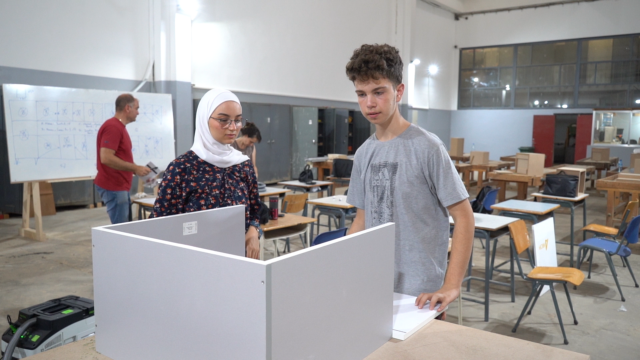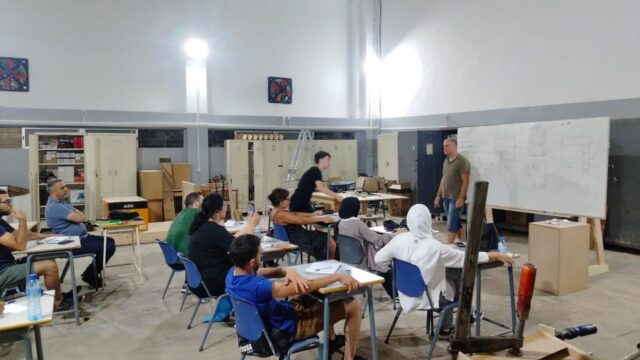The Arts & Crafts Woodwork (ACW)
The Public Vocational School in Al Sanayeh, Beirut, underwent a significant transformation under Mrs. Antoinette Khanfour’s leadership in 2010. Despite resource limitations, collaborations with private entities and donors facilitated the establishment of production factories, particularly focusing on carpentry post the Beirut Blast. The school revamped its curriculum with GIZ’s support and partnered with Menuiserie et Decoration Camile Nasser (MDCN) to repurpose facilities. Participation in the Social Justice Incubation Programme (SJIP) with COSV further aligned efforts with broader social and economic goals, providing practical education and addressing local job market needs.
Under the Social Justice Incubation Programme (SJIP), a $42,000 grant was received to renovate the carpentry facility. The plan includes organizing four Train-the-Trainer (TOT) sessions to train a total of 40 to 60 students, with each session accumulating 120 to 150 hours of instruction. Additionally, the partners aim to sell carpentry products and employ trained students in future projects. This collaboration significantly impacted both educational and economic fronts, facilitating machinery procurement, staff training, project diversification, revenue generation, and student employment. Notably, the school provided employment to two students, contributing to local employment. Efforts are underway to register the brand “Arts & Crafts Woodwork (ACW)” for market recognition.
The Arts & Crafts Woodwork (ACW) school-enterprise model combines education with modern equipment, experienced staff, and financial sustainability through grants, donations, and diversified revenue streams, overall, ACW’s multifaceted approach bridges education and industry, making a positive impact on various fronts, including high-quality education, real-world experience, financial stability, community development, industry collaboration, brand identity, and skills empowerment.



